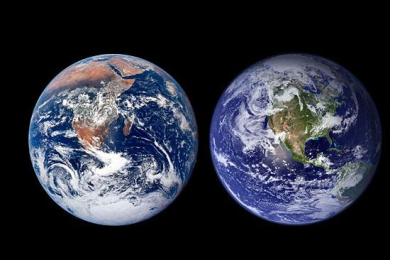Tomorrow, on Earth Day, April 22, NASA and the National Science Foundation (NSF) celebrate 20 years of the Global Learning and Observations to Benefit the Environment (GLOBE) programme. This science and education programme make it possible that students, teachers and scientist work together and participate in science data collection through hands-on science in their local communities.
Since its inception on Earth Day 1995, 114 countries, 28,000 schools and over 10 million students have participated in the GLOBE Programme.
Experience has shown that getting students involved in the project-based investigations encourages them to make connections between their local environment and the entire Earth system, providing a global perspective: “GLOBE provides students and the public worldwide with the opportunity to contribute meaningfully to our understanding of the global environment and climate. The programme not only engages students in learning about their local environment, it also empowers them to play an active role in adding to global data about our home planet”, says NASA Administrator Charles Bolden.
The collected data are used in students' own scientific investigations as well as by the larger GLOBE community and scientists in research. For example, data on soil moisture and temperature being collected by GLOBE participants are contributing to the validation of the new space-based measurements from NASA’s Soil Moisture Active Passive (SMAP) mission, as told by NASA.
For the Anniversary tomorrow many GLOBE partners are sponsoring local activities. For example, students in Colorado are collecting soil, vegetation, water chemistry and stream flow data from Rocky Mountain National Park. And participants in Thailand will conduct a workshop on using GLOBE research to understand and decrease mosquito populations.
According to NASA, the GLOBE programme will soon expand its reach with the launch of new tools such as apps for observing clouds, land cover, water colour, and surface albedo to engage life-long learners worldwide in environmental and climate science.

